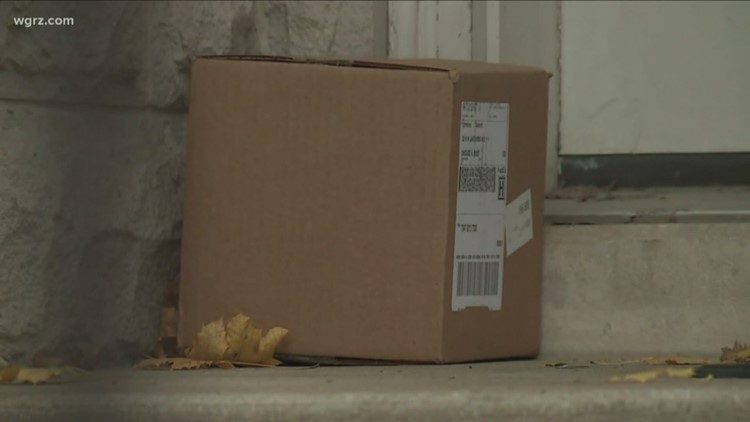NEW YORK — The New York State Division of Consumer Protection is warning New Yorkers about a scam that is hitting folks all over the country.
The DCP said folks are receiving packages they didn’t order in the mail and it's known as a brushing scam.
What happens is that scammers target a recipient and position them into becoming a 'verified buyer' when the package is delivered for the purpose of having the recipient write a fake positive review online of whatever products were sent.
“Online shopping and frequent deliveries offer scammers the opportunity to use your personal information for unscrupulous purposes,” said Acting Secretary of State Robert J. Rodriguez. “Receiving packages you did not order at your front steps does not mean it is your lucky day, but most likely, it is coming from someone using your personal information for their financial gain. Don’t fall for the brushing scams that are using you as bait to boost their online ratings with fake information.”
The DCP said, the fake reviews fraudulently boost or inflate the products’ ratings and sales numbers, which they said scammers hope results in an increase in sales, and they also compromise your personal information.
Read tips from DPC below:
How the scam works
A person receives a package(s) containing items that were not ordered or requested by the recipient. While the package may be addressed to the recipient, there is no return address, or the return address could be that of a retailer. The sender of the item is usually an international, third-party seller who has found the recipient’s address online.
Successful delivery of the item then turns the recipient into a verified buyer on online marketplaces. The scammer uses the verified buyer’s information to then post a false positive review of a product online and boost the 5-star ratings of the product, encouraging legitimate shoppers that the product advertised has received more positive ratings than it has. Since the merchandise actually received is another product that is cheaper to ship, the scammers perceive this as a profitable pay-off.
As internet shopping has become very popular in recent years, most e-commerce sites rate sellers by multiple criteria and display these seller ratings to customers. It is also a known fact that a good rating can boost sales, and sellers know how important a good review can push ratings for their products. Oftentimes, the number of items sold is usually an important factor in that rating. To give some credibility to reviews, often these brushing scams are aimed to justify a fake review online.
To avoid being victims of brushing scams, the Division of Consumer Protection offers the following tips:
- You don’t have to pay for it. Federal law may allow recipients to keep items they received but did not order. Recipients are under no obligation to pay for unsolicited merchandise and can consider it a gift. If you don’t want the item, you can donate it or simply dispose of it and do not have to return it.
- Report it. If the item received is organic (seeds, plants or food), report it to the USDA. Unsolicited seeds or plants should not be planted as they may be invasive plants, noxious weeds or carry diseases that could cause damage to economically important crops. Seeds may be sent to the address below for destruction. Please ensure the seed package is sealed tightly and mail the seeds, the original packaging, your contact information, and any additional details, to:
Office of the State Plant Health Director of New York
c/o Christopher Zaloga
500 New Karner Road
Albany, New York 12205
If the item is an unknown liquid or substance, contact the local authorities.
- Notify the retailer. If the package received is from a third-party retailer like Amazon, Walmart, eBay, or WISH report it to them and ask them to remove any reviews under your name.
- Monitor your accounts. Your personal information may have been compromised. Often scammers obtain personal information through nefarious means and with ill-intentions and use it for several scams and other illicit activities in the future. Examine your online shopping accounts and credit card bills for signs of unusual activity and check your credit report. Consumers can currently obtain free credit reports weekly through April 20, 2022.
- Change your password. If you have an account with the retailer identified on the package, change your account password with the retailer.
RELATED STORY:



